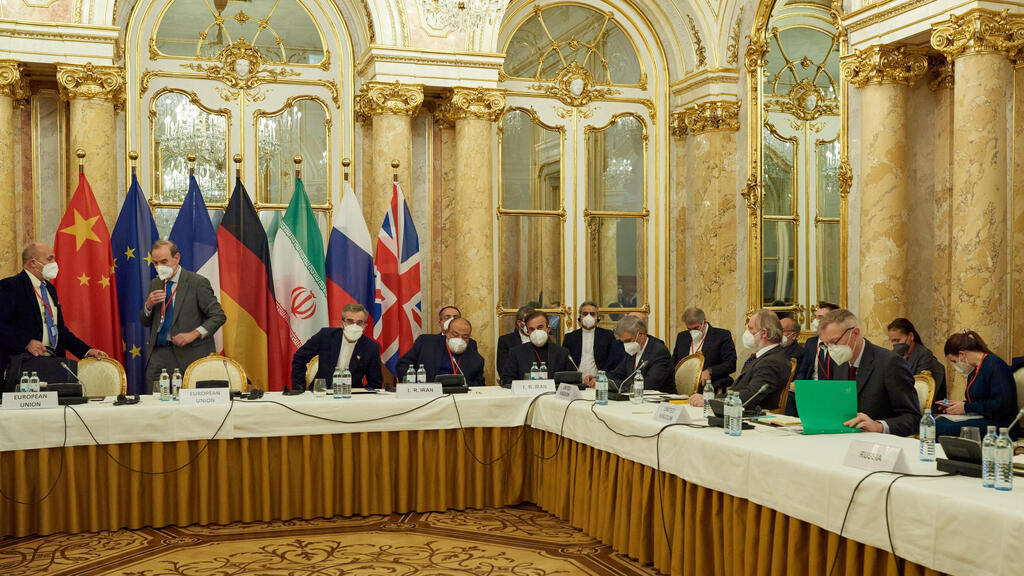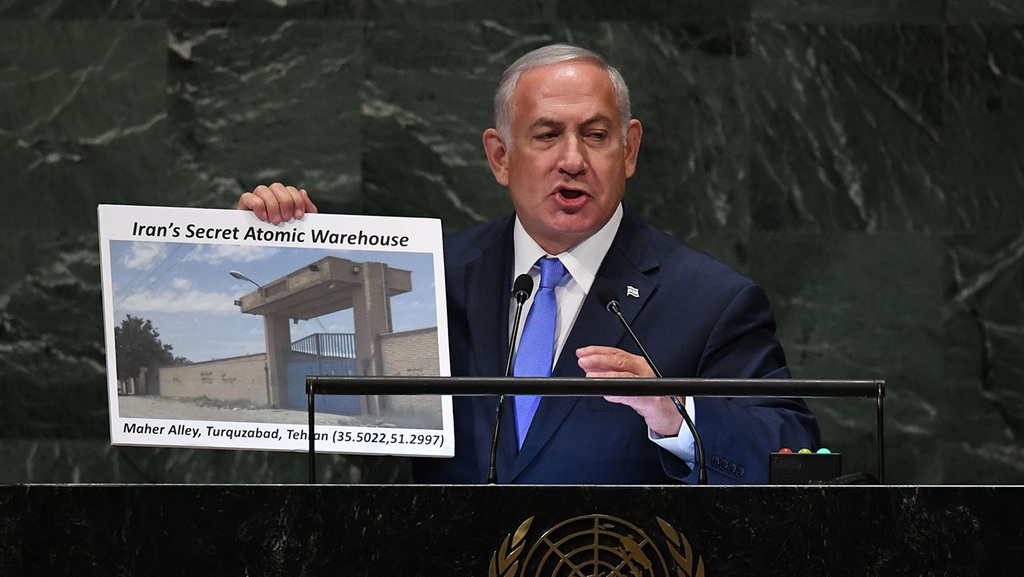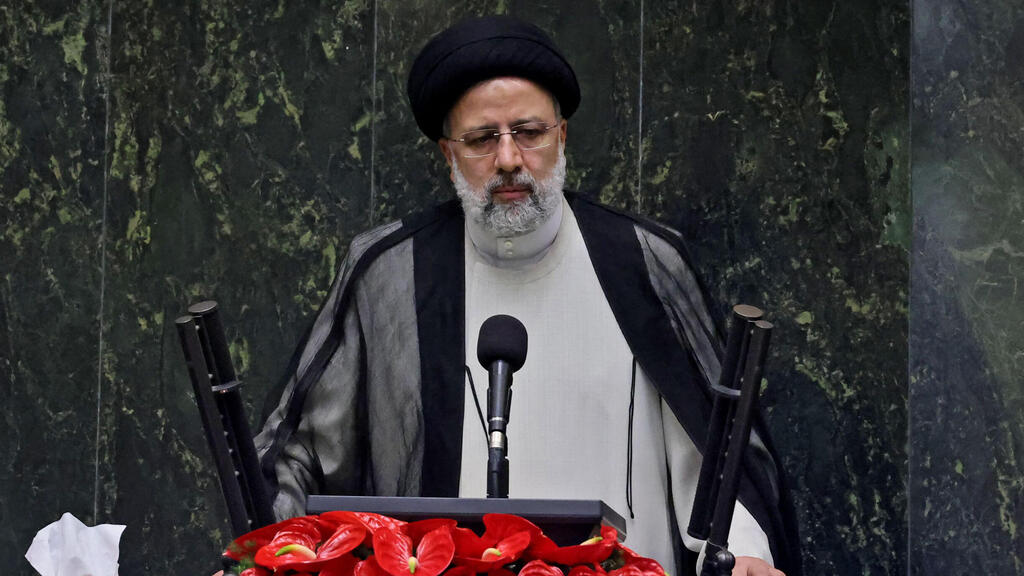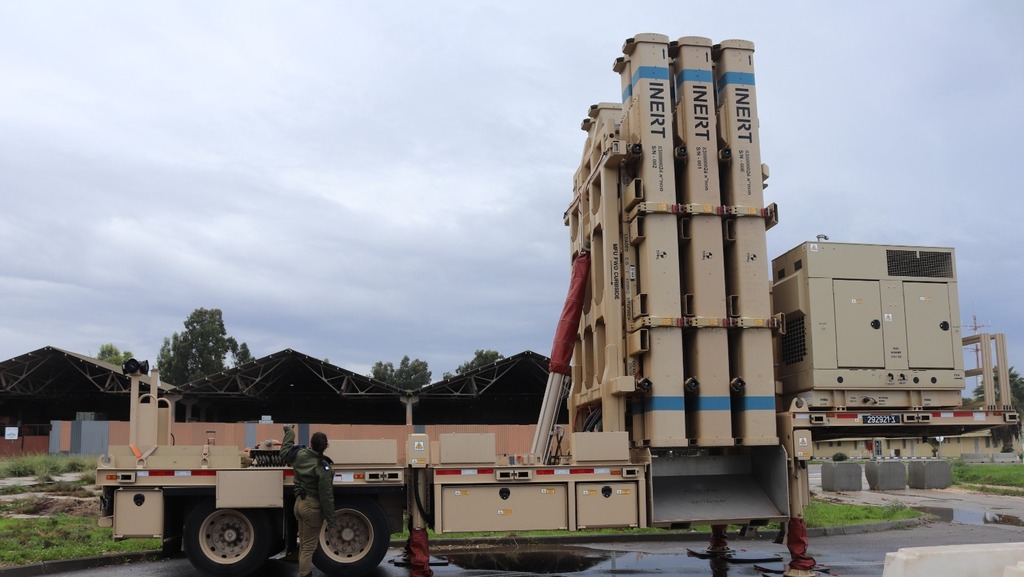Getting your Trinity Audio player ready...
So where do we stand on Iran? Prime Minister Naftali Bennett was right when he addressed the unbearable gap between the rhetoric of the former government led by Benjamin Netanyahu and its actions.
Israel's policy towards Iran since the signing of the nuclear deal in 2015 has been nothing but a failure, stemming from ineptitude and the dangerous illusions of its leader.
Netanyahu chose to clash with the administration of former U.S. President Barak Obama, missing a golden opportunity to bolster Israel's military strength, which would have enabled the IDF to act independently against the Iranian nuclear program.
In 2018, Netanyahu pushed another former U.S. leader Donald Trump to withdraw from the deal, allowing the Iranians to accelerate their rush towards a nuclear threshold, while blaming the U.S. for violating the deal.
But worst of all, Netanyahu failed to prepare a joint Israeli and American "Plan B" to surgically set Iran's nuclear program back many years - should Tehran opt to proceed to head towards the nuclear threshold.
Iran is a bitter foe set on achieving its goals, but the dangerous circumstances Israel has found itself in are Netanyahu's fault.
Netanyahu and his mouth-pieces in the press will soon claim that when faced with the strong leadership of Trump and Netanyahu, Iran backed down, but in the face of the weak administration of current U.S. President Joe Biden and Bennett's coalition - Tehran is emboldened to move forward in their nuclear ambitions.
The gravity of the situation became clear with the understanding that an effective military operation against the Iranian nuclear targets requires years of preparation and massive assistance from the Americans.
Now, Iran is months away from becoming a nuclear threshold state, which would be unstoppable shall it choose to produce a nuclear weapon.
This new reality calls for a sober evaluation and practical decisions - not empty rhetoric that may impress some in Israel but will carry no weight in Iran or among the world powers eager on reaching a deal with the Islamic Republic.
The talks in Vienna might continue without any actual results, allowing the Iranians to proceed on their path. They may even stall altogether.
5 View gallery


World powers negotiate with Iran on a return to the 2015 nuclear deal
(Photo: Reuters)
I use the term "nuclear threshold state" because in my view, Iran has no interest in proceeding beyond that point. Thus, they will be able to enjoy their success without having to publicly concede to any violations of the 2015 deal on their part.
They will succeed in doing so when they are able to enrich uranium to 90%, enough to produce one to three nuclear weapons. They will then still be two years away from becoming a nuclear state.
But at that point, UN inspectors will no longer be able to ensure the Islamic State is not covertly proceeding towards that goal.
Past experience with North Korea and Pakistan showed us that both countries had advanced their nuclear program further than was previously believed, out of sight of UN inspectors.
Iran seeks to have nuclear weapons, not to use them against the U.S., Israel or any other neighboring nation, just as North Korea has no intention of using them against their neighbor to the south.
The nuclear capability would be there in order to ensure the future of the regime and its independence to act. The Iranian ayatollahs are extreme in their ideology but they are not fools. They want to solidify their hegemony in the region, but not to bring their nation back to the stone age.
Once they become a nuclear threshold state, they will enjoy an improved position and enjoy immunity from military aggression against them.
Iran will then be seen as having achieved a strategic balance with Israel and having succeeded in forcing its will on the rest of the world.
The Iranians speak and think of Israel as an aberration in the Middle East that will eventually vanish under pressure from its opponents, surrounded by a ring of hostility and belligerence, coupled with a weakening from within.
Tehran's abilities should not be underestimated. Nor should their motivation to see Israel annihilated, but Israel's capabilities are great and it is stronger than Iran or any other enemy.
Israel can cooperate with the Sunni Arab states and if it acts wisely, it can still rely on the support of the U.S.
It is also considered a nuclear state and according to foreign media reports, has invested greatly in that capability in case nuclear weapons are introduced to the region.
Meanwhile, the U.S. is turning its geo-political attention on China and is withdrawing from the Middle East.
This policy shift began with Obama, increased under Trump and is becoming practice under Biden. America cannot be persuaded to change that stance in the near future, nor can it be made to attack Iran militarily in order to distance it from its nuclear goal.
It is unclear whether the U.S. and Israel even have a plan in place for that purpose and that is the krux of Netanyahu's historic failure.
But, Israel must make the best of a bad situation and there is an urgent need for strong cooperation with Washington to achieve common goals, such as preventing Iran from becoming a nuclear threshold state.
This is no time for public disagreement and a mutual blame game that will be nothing more than an embarrassment, and enable no sober political position backed by military or other means.
This cooperation includes intelligence sharing, an agreement over situations requiring and Israeli or an American response, and concrete preparations for action if such scenarios come to pass.
There must be an agreement on military aid to increase Israel's capability to act against Iran independently, and a construction of a multi system defensive mechanism to protect Israel from missile fire, including the advanced laser-based David's Sling – a joint Israeli and American missile defense system.
In an atmosphere of mutual trust between Jerusalem and Washington, the U.S. will be interested in joint exercises not least of all because such military capabilities can later be used in the Chinese arena, should they be needed there.
A nuclear Iran - and even it being a nuclear threshold state - would be a cardinal change for the worst as far as Israel is concerned, but it does not pose an immediate existential threat.
Nothing should sway Israel away from its goal to prevent a nuclear Iran, but there must also be a realistic view of the reality and an understanding that mistakes made by our leaders have a toll.
The real and immediate danger is in a nuclear race beginning in the region. After Iran achieves nuclear capability, Turkey will attempt to follow suit, as will Egypt and Saudi Arabia. Within one decade one third of world's dictatorships will aspire to the same goal.
That would see a nuclear device in the hands of terrorists and could endanger the world at large and not only Israel, and there must be preparation for that scenario as well.
Bravado and empty rhetoric is not the way to proceed and will only make Israel weaker and minimize its ability to act in self-defense.
We must all expect more from this "coalition of change".





